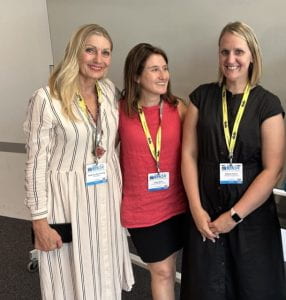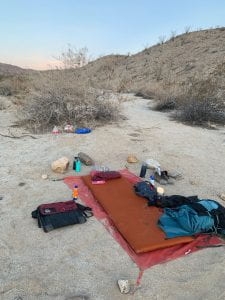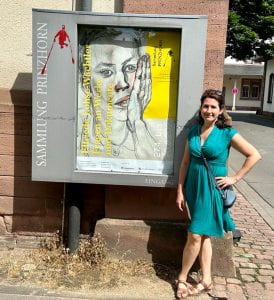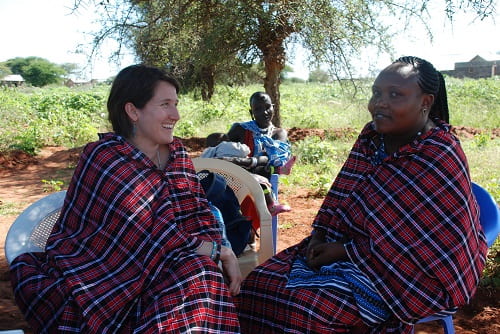Current Research Projects
Early Psychosis Care

Presenting research at the International Early Mental Health Association conference 2023.
Dr. Myers has been engaging with persons with lived experience, clinicians, communities, and youth around topics related to early psychosis care since 2014 in the north Texas area. From 2014-2017, she engaged in an ethnographic project involving 47 diverse young persons and their families about how they made decisions about treatment for early psychosis.
Since 2020, she has continued this work alongside researchers at EPINET-TX as part of a larger National Institute of Mental Health-funded endeavor to create hubs for research around the country that accelerate advances in early psychosis care and recovery outcomes through learning health care partnerships.
The team has interviewed individuals with early psychosis who report using substances to give those in the medical field a better understanding of what kind of support would have the most significant impact, as well as community providers to plan stronger community-based offerings, including in rural areas. A new research proposal will focus on loneliness and social inclusion if funded.
Race, Ethnicity, and Mental Health Equity
For the past several years, members of the research team have been interviewing mental health care providers in North Texas, including mental health professionals and pastors. The interviews focus on issues faced by minority communities who are experiencing mental health concerns, seeking out help for those concerns, and receiving quality mental health care. A new research proposal has been submitted to extend this research to promote mental health in underserved communities and, if funded, will include working with a variety of immigrant groups in the Dallas area.
Caregiving Networks For Youths in Crisis
This research, which began in 2013, has focused on various experiences of hearing distressing voices in Tanzania–the main symptom for psychosis–and ways to innovate better care for young people experiencing those symptoms. We have published several articles from these projects in partnership with some of our Tanzanian colleagues and more are on the way. A recent research effort has extended this project to Mozambique with another publication planned and a new research proposal submitted to continue work on this topic.
American Wilderness Rites of Passage

Wilderness solo site 2022
Dr. Myers has begun preliminary research on wilderness rites of passage and their transformative potential for people facing life transitions. She has conducted fieldwork on this topic in Appalachia (2017), Death Valley (2020), and the Anza- Borrego Desert (2022). She has also designed a course to offer a Rites of Passage opportunity to students at SMU-in-Taos. Future research may consider the neuroaesthetics of place and the potential of rituals of transformation for mental health.
Creativity and Mental Health

Visiting Prinzhorn Collection, 2023
In Summer 2023, Dr. Myers initiated a project on creativity and mental health, starting primarily with the visual arts to explore how “madness” has been rendered in art, how persons deemed “mad” are presented in art installations and galleries, and how persons have used art to heal. This project has been funded by the Sam Taylor Foundation and is ongoing. Initial visits to “outsider art” sites in Madrid, Barcelona, Cadaques, Lyon, Lausanne, and Heidelberg occupied time in Summer 2024. Future plans include continuing research on this genre, as well as engaging in interviews with dealers, curators, musicians and artists around the globe.
RECENTLY COMPLETED RESEARCH PROJECTS
Homeless Innovations and Jail Diversion
The lab served as one hub for a national research project identifying innovative approaches to chronic homelessness in major cities around the United States. We engaged in ethnographic research on an innovative program to divert people who were homeless and seriously mentally ill from jail for misdemeanors like trespassing. This project was conducted in partnership with The Harris Center and funded through the Public Mental Health Partnership at UCLA and the Los Angeles County Department of Mental Health (LACDMH).

